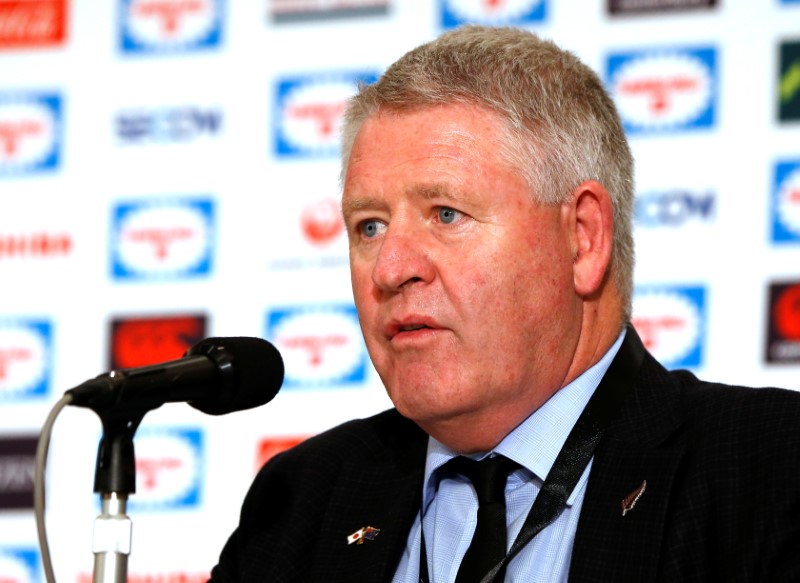WELLINGTON (Reuters) - Japan may one day be considered for inclusion in the Rugby Championship but the current focus is on improving the competitiveness of the Tokyo-based Sunwolves in Super Rugby, New Zealand's Steve Tew has said.
With Japan hosting Asia's first World Cup in 2019, World Rugby vice chairman Agustin Pichot has been vocal about expanding the opportunities for second-tier countries in a bid to grow the game globally.
However, while New Zealand Rugby (NZR) Chief Executive Tew recognised Japan would benefit from regular competition, he said it was too soon to talk about them joining the All Blacks, Australia, South Africa and Argentina in the Rugby Championship.
"At some stage Japan being considered for the Rugby Championship would be on the table but, clearly, that has to come at a time when they were able to compete," he told the New Zealand Herald on Thursday.
"Right now SANZAAR is focused on ensuring the Sunwolves can compete in Super Rugby. That's the first step, and they've clearly got a way to go."
The Sunwolves were introduced into Super Rugby last year when it was expanded to 18 teams and have struggled to get to grips with the intense competition, winning just three of 30 games in two seasons so far.
SANZAAR has decided to reduce the competition to 15 sides from next year, with an Australian and two South African teams being axed, but the Sunwolves are safe until at least 2020.
'CREDIBLE THREATS'
The Sunwolves ended this season on a high by thumping the Auckland Blues 48-21 for their first win over a New Zealand side, but there has been little else to smile about.
They endured embarrassing defeats to the Wellington Hurricanes (83-17) and Lions (94-7) and conceded 671 points in their 15 regular season matches, finishing 2-13 for the season.
The Sunwolves are also hampered by contract issues.
Many of their players are contracted to top domestic clubs in Japan where the season does not end until February, meaning the Sunwolves have less time to work with their players in pre-season, which greatly affects their Super Rugby preparations.
Tew said that while Japan, who shocked South Africa 34-32 at the last World Cup, would become part of the conversation about potential expansion of the Rugby Championship, he added that other sides in North America and the South Pacific could also be considered.
"Their entry into a regular competition is a matter of time but ... it's not just Japan we need to be taking into account," Tew said.
"We've got USA and Canada; Georgia in Europe and so how do you find regular competition for those teams to develop and be truly credible threats at Rugby World Cup? That's the challenge for World Rugby.
"If we're going to expand in this part of the world the Pacific Islands are a consideration but they have to come back and prove its right for them and the competition."
